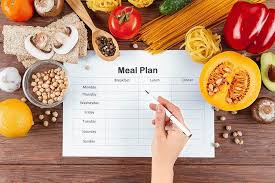Why the Best Diet for Students Matters
The academic environment is demanding. From early morning lectures to late-night study sessions, students often neglect their health, resorting to fast food, sugary snacks, and caffeinated drinks. However, research shows that proper nutrition can improve concentration, memory, and overall academic performance. Therefore, following the best diet for students isn’t just about physical health—it’s about enhancing cognitive function and emotional well-being.
A diet rich in nutrients boosts brain power, supports the immune system, and helps regulate mood. Students who eat well are more likely to have better attendance, higher grades, and greater energy levels. Moreover, forming healthy eating habits early in life sets the foundation for long-term health.

The Importance of Nutrition for Student Life
Students, especially those in high school and college, are under constant pressure to perform well academically while also managing extracurricular activities, part-time jobs, and social commitments. This demanding lifestyle increases the need for optimal nutrition. Poor dietary habits, such as skipping meals or eating high-sugar snacks, can lead to fatigue, poor memory retention, and lack of concentration.
Choosing the best diet for students helps to:
Improve cognitive function and mental alertness.
Stabilize energy levels throughout the day.
Strengthen the immune system.
Support emotional and psychological well-being.
Key Components of the Best Diet for Students
1. Complex Carbohydrates: Fuel for the Brain
The brain relies heavily on glucose for energy. However, not all carbs are created equal. Complex carbohydrates, found in whole grains like brown rice, oats, and whole wheat bread, provide a steady release of glucose, avoiding the spikes and crashes caused by sugary foods.
Best sources:
Oatmeal
Quinoa
Sweet potatoes
Whole grain pasta
Legumes (lentils, beans)
2. Lean Proteins: Building Blocks of Mental Alertness
Proteins are essential for the production of neurotransmitters, which regulate mood and cognition. Consuming lean protein sources helps students stay alert, focused, and full for longer periods.
Best sources:
Eggs
Chicken breast
Fish (especially oily fish like salmon, which is rich in omega-3s)
Greek yogurt
Tofu and tempeh
3. Healthy Fats: Essential for Brain Health
Not all fats are bad. Healthy fats, especially omega-3 fatty acids, are crucial for brain development and function. They improve memory, mood, and overall cognitive performance.
Best sources:
Avocados
Nuts and seeds (especially walnuts, flaxseeds, chia seeds)
Olive oil
Fatty fish (sardines, salmon, mackerel)
4. Fruits and Vegetables: Vitamins, Minerals, and Antioxidants
Fruits and vegetables are packed with essential nutrients that support brain health, immunity, and energy. A colorful variety ensures a wide range of vitamins and antioxidants.
Best picks:
Berries (rich in antioxidants)
Bananas (good source of potassium and energy)
Spinach and kale (high in iron and folate)
Carrots and bell peppers (high in beta-carotene)
Broccoli (a great source of vitamin K)
5. Hydration: The Forgotten Nutrient
Even mild dehydration can impact concentration and energy levels. Students should aim to drink at least 6-8 glasses of water a day, especially if they consume caffeine, which can be dehydrating.
Hydrating tips:
Carry a refillable water bottle.
Infuse water with lemon, cucumber, or berries for flavor.
Limit sugary drinks and sodas.
Meal Planning Tips for Students ( Best diet for students)
Creating a balanced meal plan doesn’t need to be complicated or expensive. Here’s how students can stick to the best diet for students even on a tight budget and busy schedule:
1. Plan Ahead
Preparing meals in advance helps avoid the temptation of junk food. Batch cook on weekends and store meals in portions.
2. Smart Snacking
Keep healthy snacks on hand like mixed nuts, fruits, yogurt, or homemade granola bars.
3. Balanced Breakfast
Skipping breakfast can lead to fatigue and poor concentration. Include a mix of carbs, protein, and healthy fats for an ideal start.
Example: Whole grain toast + avocado + boiled egg + a fruit.
4. Mindful Eating
Avoid eating while studying or watching TV. Focus on your food, eat slowly, and listen to hunger cues.
Foods to Avoid
While it’s okay to indulge occasionally, some foods can negatively affect a student’s focus and health:
Sugary foods and drinks: Cause energy crashes and brain fog.
Processed snacks: Often high in sodium, unhealthy fats, and additives.
Excessive caffeine: Can cause anxiety and disturb sleep.
Fast food: Generally low in nutrients and high in saturated fats.
Sample One-Day Meal Plan for Students
Here’s a sample meal plan aligned with the principles of the best diet for students:
Breakfast:
Oatmeal topped with berries and a spoonful of almond butter
Boiled egg
Green tea or water
Mid-Morning Snack:
A banana or apple
Handful of mixed nuts
Lunch:
Grilled chicken wrap with whole grain tortilla, spinach, and hummus
Side of carrots and cucumber sticks
Afternoon Snack:
Greek yogurt with a drizzle of honey
Small piece of dark chocolate (70% cocoa or higher)
Dinner:
Baked salmon or tofu
Quinoa or brown rice
Steamed broccoli and sweet potatoes
Evening:
Herbal tea (chamomile or peppermint)
Optional: a few almonds or a small fruit
CONCLUSION
Selecting the best diet for students is one of the smartest investments in academic and personal success. A nutrient-dense diet supports brain function, enhances mood, and fuels the body for long hours of study and productivity. While every student’s needs and preferences may vary, the key is to prioritize whole, unprocessed foods and maintain balance. With the right eating habits, students can power through their academic challenges with clarity, energy, and confidence.
TO KNOW MORE ABOUT CONTACT US
HERE ARE SOME PRODUCTS LINK WHICH SHOULD BE INCLUDE IN BEST DIET